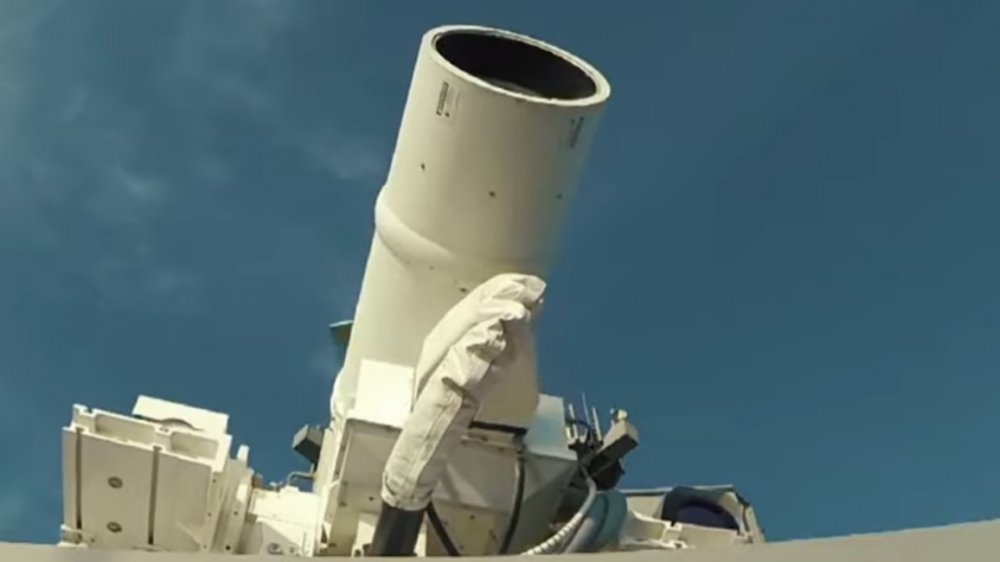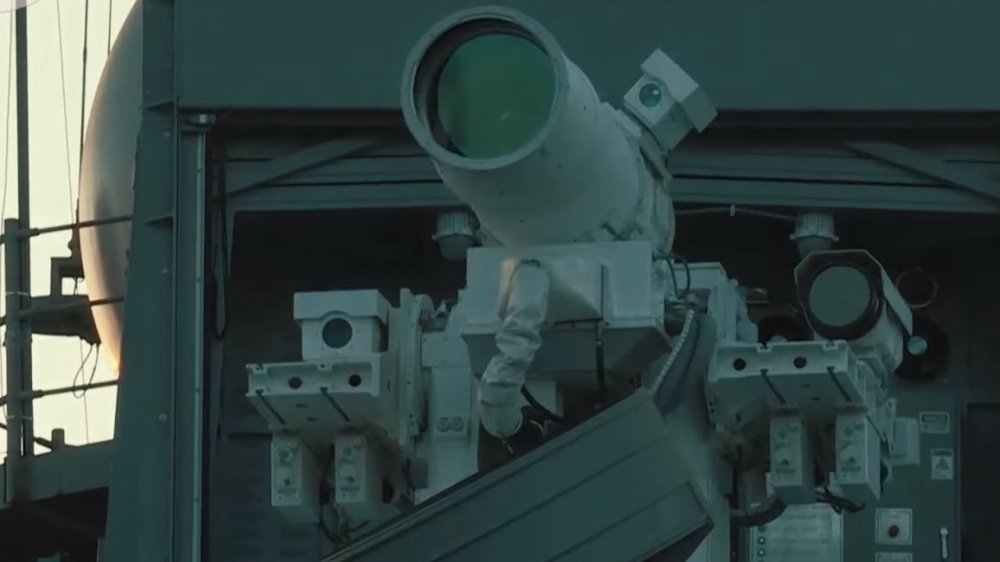Air Force Torches Drones With New Laser Defense System
If you're tired of your brother in law constantly showing up to family gatherings with a cool new drone, buzzing the nieces and nephews and forcing the family to crane their necks upwards so he can get another photo of everyone staring at the sky like some kind of UFO cult, great news: Lockheed Martin has announced a successful test of their ATHENA anti-drone weapons system. And brother, you'd better believe it's a giant laser beam.
ATHENA, which stands for Advanced Test High Energy Asset since we're apparently playing the rules of acronyms fast and loose these days, is described by Lockheed Martin as "a transportable, ground-based system that serves as a low-cost test bed for demonstrating technologies required for military use of laser weapon systems." It utilizes a 30 kilowatt laser, designated the Accelerated Laser Demonstration Initiative, or ALADIN, which, again, is pushing it, abbreviation-wise.
No word yet on Project: Ill-Tempered Sea Bass
Per a press release from Lockheed Martin, the test took place at a government testing facility at Fort Sill, Oklahoma. Operated by United States Air Force personnel, it was reportedly "able to destroy multiple drones in engagements representative of what is being encountered by U.S. armed forces today."
The threat of unmanned aerial attacks has become a prescient one in recent years, with drone technology now widely available in both fixed-wing and quadcopter formats. As reported by Popular Mechanics, that potential was realized during a 2018 attack on a series of Russian military bases in Syria using low-tech, black market drones. While the drones were ultimately shot down before causing any serious damage, the point was illustrated. Lockheed Martin claims that their system will provide a cost-effective defense against similar attacks in the future.
The laser is also reportedly capable of destroying inbound missiles and artillery shells. In good news for anyone in need of a swift panic attack, Lockheed Martin claims that when in anti-artillery mode, the ATHENA weapons system operates autonomously, utilizing artificial intelligence to zero in on fast-moving targets and firing without human authorization. It's the sort of technological development which, historically speaking, invariably precedes a computer's realization that man is the greatest threat of all and the Age of Machines is upon us.

